Journalist Nadim Murder: Perpetrators Safe, Family in Danger
 _x000D_
_x000D_
After the murder, the case was initially handled by Bakshiganj Police, later transferred to the District Detective Branch (DB), and finally to the Criminal Investigation Department (CID). However, Nadim’s family has alleged that political interference has continually hindered the investigation. They claim that the investigating officers have been replaced multiple times and that political influence has weakened the chargesheet._x000D_
_x000D_
Despite clear evidence, including CCTV footage, some suspects remain free. Rabbiatul Jannat noted that despite the inclusion of footage featuring the seventh accused, he was removed from the chargesheet. Another individual, Nayon, who had admitted his involvement, was similarly omitted. The suspects continue to threaten Nadim’s family._x000D_
_x000D_
Our investigation into the murder has revealed that local Awami League leaders Shahina, the upazila president, and Ismail Hossain Babul Talukdar, the general secretary, were involved. They were allegedly controlled by Abul Kalam Azad, former MP of Jamalpur-1 and former Minister of Information and Culture Affairs. Multiple attempts were made to murder Nadim under Azad’s orders, as Nadim himself had expressed concerns for his life._x000D_
_x000D_
Just days before the murder, at a special Awami League meeting on April 14, local leaders had openly declared that silencing or killing Nadim would take only a minute. In response to these instructions, Mahmudul Alam Babu acted upon their orders, ultimately leading to Nadim’s murder on June 14. CCTV footage from the incident shows Shahina, Babul, and their associates directly involved in the attack._x000D_
_x000D_
Following the murder, Nadim’s family faced psychological harassment. Shahina, who was involved in the murder plot, began a campaign of mental abuse against them. Even when Nadim’s wife attempted to file the case, she was threatened with job loss and further intimidation._x000D_
_x000D_
Beyond Shahina’s involvement, Babul Talukdar’s role was made evident during a protest held on July 20, 2023, in Bakshiganj, where journalists gathered to demand justice. Unexpectedly, MP Abul Kalam Azad attended, alongside Babul’s brother, Rauf Talukdar, a former chairman expelled from the BNP. From the stage, Rauf openly threatened local journalists, with prominent journalists like Omar Faruque and Manzurul Ahsan Bulbul passively observing._x000D_
_x000D_
_x000D_
_x000D_
After the murder, the case was initially handled by Bakshiganj Police, later transferred to the District Detective Branch (DB), and finally to the Criminal Investigation Department (CID). However, Nadim’s family has alleged that political interference has continually hindered the investigation. They claim that the investigating officers have been replaced multiple times and that political influence has weakened the chargesheet._x000D_
_x000D_
Despite clear evidence, including CCTV footage, some suspects remain free. Rabbiatul Jannat noted that despite the inclusion of footage featuring the seventh accused, he was removed from the chargesheet. Another individual, Nayon, who had admitted his involvement, was similarly omitted. The suspects continue to threaten Nadim’s family._x000D_
_x000D_
Our investigation into the murder has revealed that local Awami League leaders Shahina, the upazila president, and Ismail Hossain Babul Talukdar, the general secretary, were involved. They were allegedly controlled by Abul Kalam Azad, former MP of Jamalpur-1 and former Minister of Information and Culture Affairs. Multiple attempts were made to murder Nadim under Azad’s orders, as Nadim himself had expressed concerns for his life._x000D_
_x000D_
Just days before the murder, at a special Awami League meeting on April 14, local leaders had openly declared that silencing or killing Nadim would take only a minute. In response to these instructions, Mahmudul Alam Babu acted upon their orders, ultimately leading to Nadim’s murder on June 14. CCTV footage from the incident shows Shahina, Babul, and their associates directly involved in the attack._x000D_
_x000D_
Following the murder, Nadim’s family faced psychological harassment. Shahina, who was involved in the murder plot, began a campaign of mental abuse against them. Even when Nadim’s wife attempted to file the case, she was threatened with job loss and further intimidation._x000D_
_x000D_
Beyond Shahina’s involvement, Babul Talukdar’s role was made evident during a protest held on July 20, 2023, in Bakshiganj, where journalists gathered to demand justice. Unexpectedly, MP Abul Kalam Azad attended, alongside Babul’s brother, Rauf Talukdar, a former chairman expelled from the BNP. From the stage, Rauf openly threatened local journalists, with prominent journalists like Omar Faruque and Manzurul Ahsan Bulbul passively observing._x000D_
_x000D_
 _x000D_
_x000D_
The murder of Golam Rabbani Nadim has exposed the alarming influence of political leaders and the inaction of law enforcement. Local Awami League leaders wielded such power that the investigation saw little progress. Nadim’s family remains in a state of constant insecurity, while the perpetrators enjoy political protection. The culture of impunity has emboldened those responsible for Nadim’s murder._x000D_
_x000D_
Nadim’s case is not only a tragedy for his family but also a dark chapter for press freedom in Bangladesh. His death highlights the ultimate cost of speaking out against corruption and those in power—one’s life._x000D_
_x000D_
Meanwhile, journalist organizations, which initially expressed concern and called for justice, have since remained largely silent. This alarming lack of action raises critical questions about the state of press freedom in the country. Many journalists who tried to stand by Nadim’s family have faced threats themselves, creating an environment of fear and insecurity within the press community._x000D_
_x000D_
Journalist associations are also deeply divided along political lines, with many working to protect the interests of their respective political factions. As a result, no single organization has been able to take a firm stand against Nadim’s murder._x000D_
_x000D_
Some journalist organizations maintain close ties with ruling party leaders, fearing that speaking out against them could harm their careers or organizational standing. Consequently, there has been little public condemnation of the murder, particularly from media outlets in Dhaka._x000D_
_x000D_
The murder of Golam Rabbani Nadim is not just a personal vendetta; it is another example of the culture of impunity and the corrupt system in Bangladesh. If this case is not properly investigated and justice is not served, journalists across the country will face even greater dangers._x000D_
_x000D_
Nadim’s family has not only lost a loved one—they have lost their right to live safely. Their ongoing struggle and life in fear remind us that unless this cycle of impunity is broken, we risk losing many more voices like Nadim’s.
_x000D_
_x000D_
The murder of Golam Rabbani Nadim has exposed the alarming influence of political leaders and the inaction of law enforcement. Local Awami League leaders wielded such power that the investigation saw little progress. Nadim’s family remains in a state of constant insecurity, while the perpetrators enjoy political protection. The culture of impunity has emboldened those responsible for Nadim’s murder._x000D_
_x000D_
Nadim’s case is not only a tragedy for his family but also a dark chapter for press freedom in Bangladesh. His death highlights the ultimate cost of speaking out against corruption and those in power—one’s life._x000D_
_x000D_
Meanwhile, journalist organizations, which initially expressed concern and called for justice, have since remained largely silent. This alarming lack of action raises critical questions about the state of press freedom in the country. Many journalists who tried to stand by Nadim’s family have faced threats themselves, creating an environment of fear and insecurity within the press community._x000D_
_x000D_
Journalist associations are also deeply divided along political lines, with many working to protect the interests of their respective political factions. As a result, no single organization has been able to take a firm stand against Nadim’s murder._x000D_
_x000D_
Some journalist organizations maintain close ties with ruling party leaders, fearing that speaking out against them could harm their careers or organizational standing. Consequently, there has been little public condemnation of the murder, particularly from media outlets in Dhaka._x000D_
_x000D_
The murder of Golam Rabbani Nadim is not just a personal vendetta; it is another example of the culture of impunity and the corrupt system in Bangladesh. If this case is not properly investigated and justice is not served, journalists across the country will face even greater dangers._x000D_
_x000D_
Nadim’s family has not only lost a loved one—they have lost their right to live safely. Their ongoing struggle and life in fear remind us that unless this cycle of impunity is broken, we risk losing many more voices like Nadim’s.

-
Previous Post
The Man Behind Press Express: Sheikh Mubin
-
Next Post
Unprofessional News is More Widespread on News-Based Channels

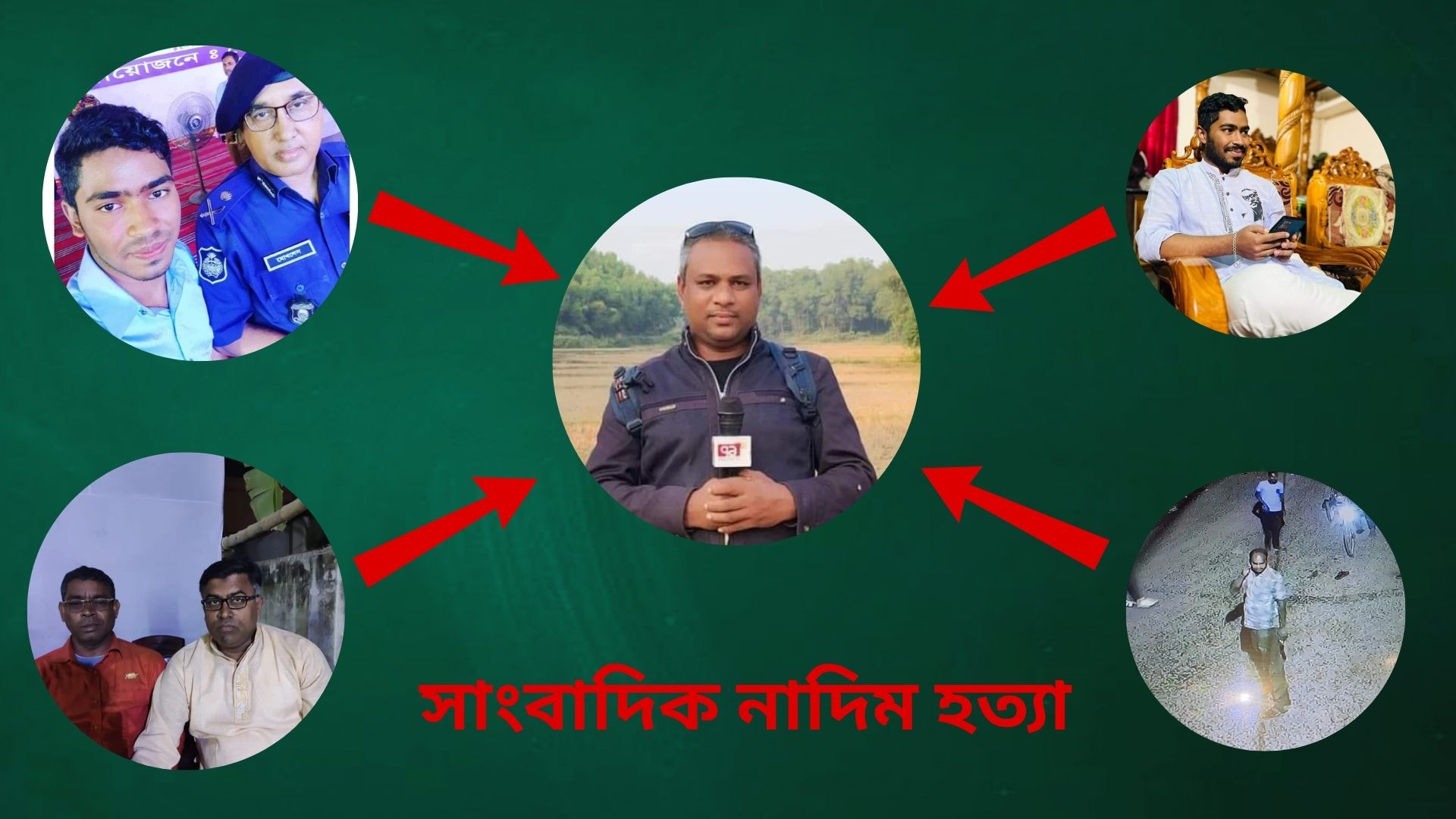
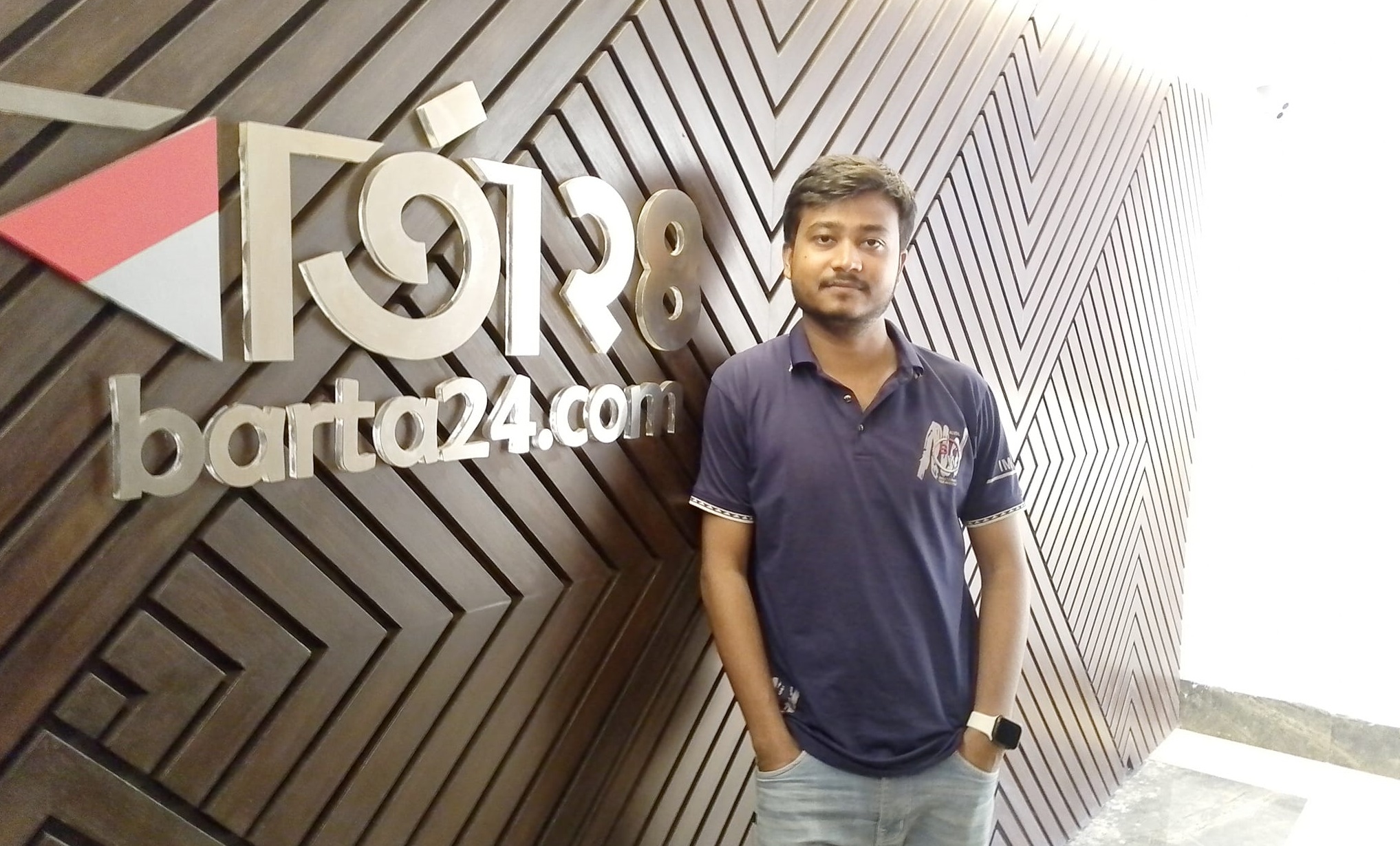



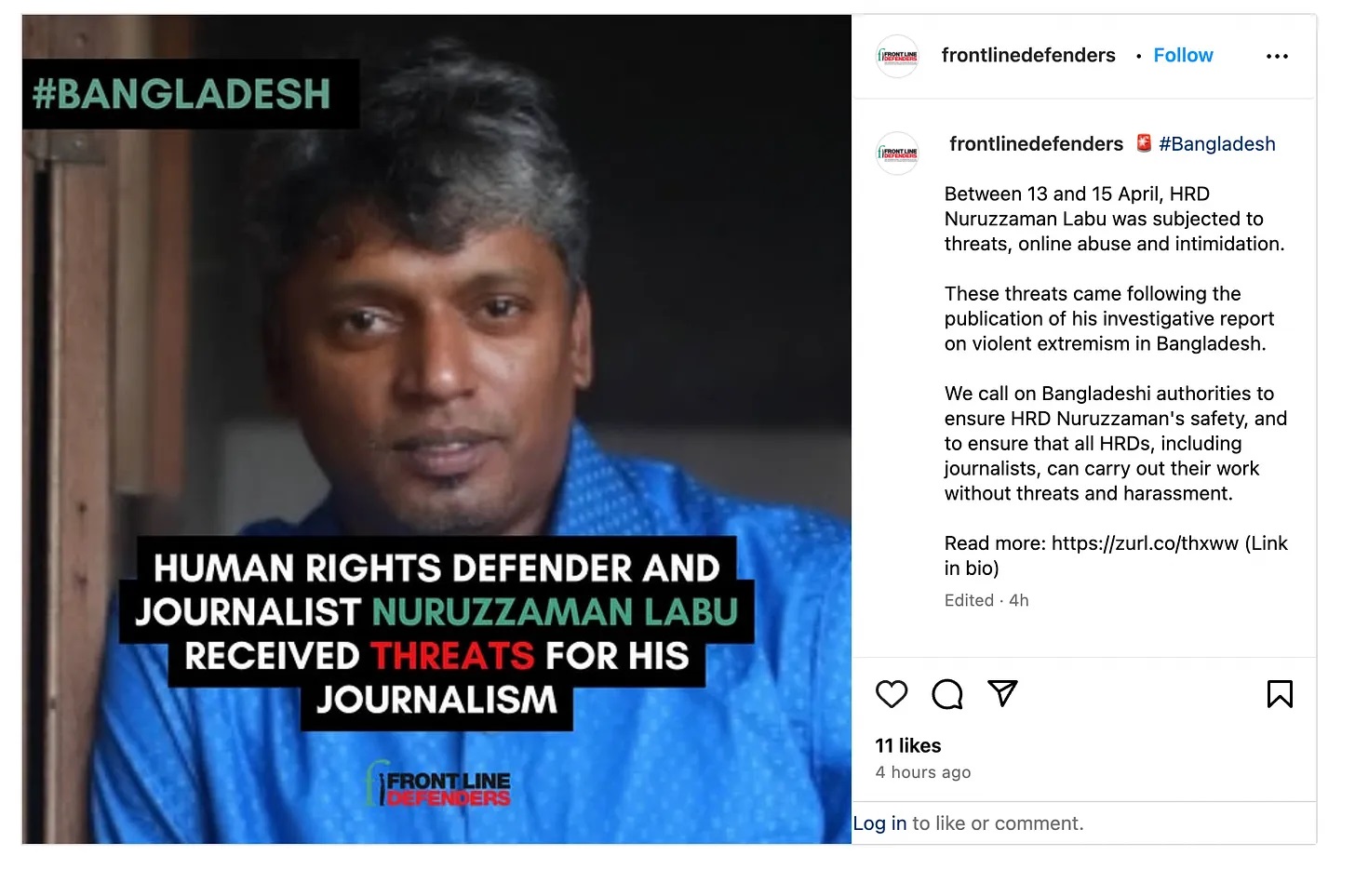
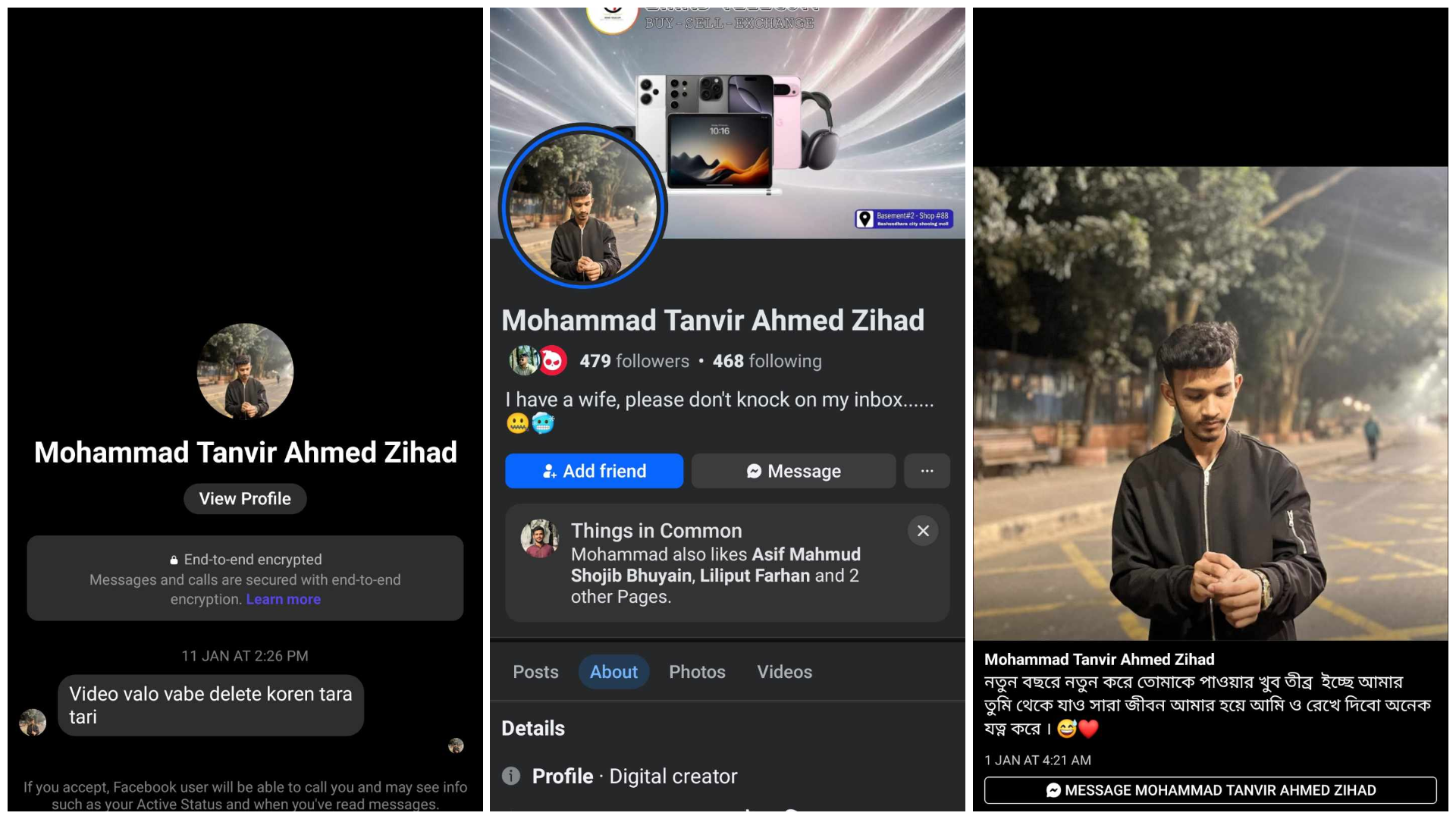
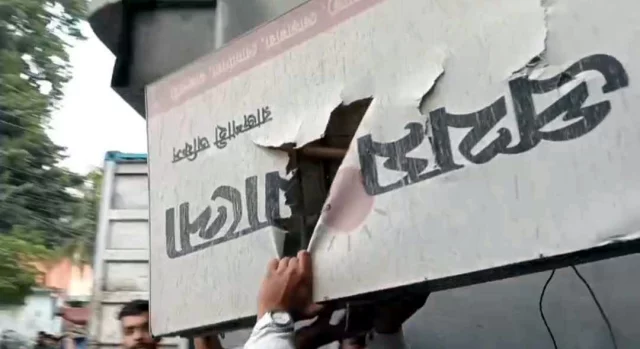

Two Comments